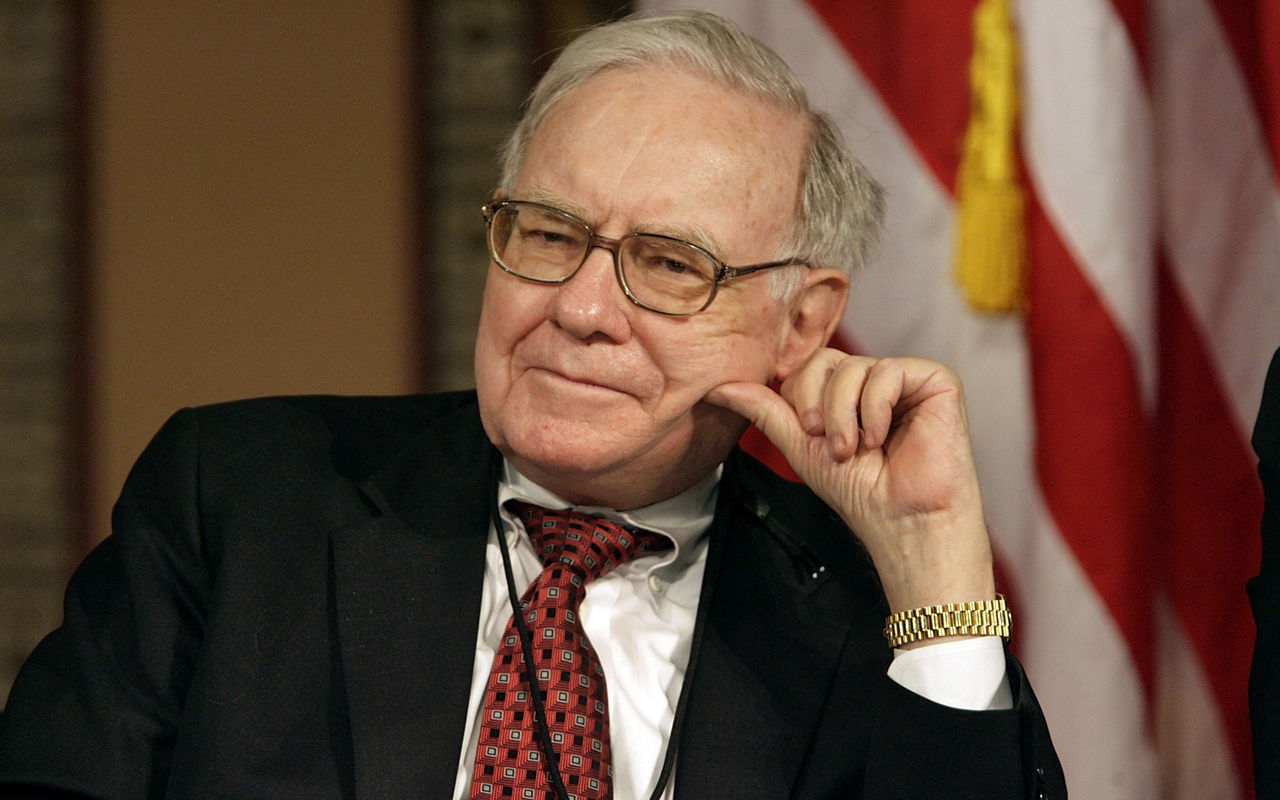Surprise! Mutual Fund Fees Fall
Investing with two of the biggest fund companies may cost you less, and one fund company will pay you.

Profit and prosper with the best of Kiplinger's advice on investing, taxes, retirement, personal finance and much more. Delivered daily. Enter your email in the box and click Sign Me Up.
You are now subscribed
Your newsletter sign-up was successful
Want to add more newsletters?

Delivered daily
Kiplinger Today
Profit and prosper with the best of Kiplinger's advice on investing, taxes, retirement, personal finance and much more delivered daily. Smart money moves start here.

Sent five days a week
Kiplinger A Step Ahead
Get practical help to make better financial decisions in your everyday life, from spending to savings on top deals.

Delivered daily
Kiplinger Closing Bell
Get today's biggest financial and investing headlines delivered to your inbox every day the U.S. stock market is open.

Sent twice a week
Kiplinger Adviser Intel
Financial pros across the country share best practices and fresh tactics to preserve and grow your wealth.

Delivered weekly
Kiplinger Tax Tips
Trim your federal and state tax bills with practical tax-planning and tax-cutting strategies.

Sent twice a week
Kiplinger Retirement Tips
Your twice-a-week guide to planning and enjoying a financially secure and richly rewarding retirement

Sent bimonthly.
Kiplinger Adviser Angle
Insights for advisers, wealth managers and other financial professionals.

Sent twice a week
Kiplinger Investing Weekly
Your twice-a-week roundup of promising stocks, funds, companies and industries you should consider, ones you should avoid, and why.

Sent weekly for six weeks
Kiplinger Invest for Retirement
Your step-by-step six-part series on how to invest for retirement, from devising a successful strategy to exactly which investments to choose.
Most types of mutual funds haven't changed their fees much in recent years. The one exception: index funds. Investors have benefited from the intense competition among exchange-traded funds. That has led traditional open-end index funds to cut their fees, too, and some brokers have dropped commissions for buying and selling ETFs.
Now, two of the biggest fund companies are opening new fronts in the expense wars. Vanguard has announced de facto cuts by lowering the initial minimum investment for its Admiral class of index funds from $100,000 to $10,000. The move, by the firm that is the low-cost leader when it comes to serving the little guy, means that most of the 1.8 million investors who hold $10,000 or more in Vanguard index funds will save on fees.
Deep Cuts
The reductions apply to both stock and bond funds. For example, the expense ratio for Total Stock Market Index drops from 0.18% for the Investor class (symbol VTSMX) to 0.07% for the Admiral class (VTSAX). For European Stock Index, the fee drops from 0.27% for the Investor class (VEURX) to 0.16% for the Admiral class (VEUSX).
From just $107.88 $24.99 for Kiplinger Personal Finance
Become a smarter, better informed investor. Subscribe from just $107.88 $24.99, plus get up to 4 Special Issues

Sign up for Kiplinger’s Free Newsletters
Profit and prosper with the best of expert advice on investing, taxes, retirement, personal finance and more - straight to your e-mail.
Profit and prosper with the best of expert advice - straight to your e-mail.
Vanguard is making things easy for its clients by switching them to the cheaper class automatically. Check your account online or call customer service. If your money hasn't yet been moved to the Admiral funds, ask Vanguard to take action right away. The exchanges will be tax-free.
Next, I turn to another fine firm but one that has been much less considerate of rank-and-file investors. Bond giant Pimco treats institutions fairly. But fees for its Class A and Class D shares, held mostly by retail investors, are indefensibly high. Pimco's parent, Allianz, is responsible for selling Pimco's funds to the masses and, like many insurers, tries to get as much as it can. So it charges 0.90% a year, for example, for Pimco Total Return A (PTTAX) and 0.75% a year for Total Return D (PTTDX), even though the fund's assets (in all classes combined) have grown to more than $250 billion. It's a similar story at other Pimco funds.
But Pimco is reclaiming responsibility for distributing its funds to retail investors, and there are hints of coming fee reductions. I don't know whether that means fees will drop by two-hundredths of a percentage point or by twenty-hundredths. But given today's meager bond yields, reductions of any size would help. Let's hope they're bigger rather than smaller.
For the most amazing cuts of all, I call your attention to two Bridgeway funds. One is charging investors nothing. In the other case, Bridgeway is paying shareholders to invest. I kid you not.
The explanation: Bridgeway ties management fees to performance. Its funds tack on extra fees when they perform well and trim fees when they perform poorly. Results have been awful the past three years, so the sponsor is paying the price. As a result, the current expense ratio for Bridgeway Aggressive Investors 1 (BRAGX) is a remarkable -0.51%. (In theory, this means that if the fund grossed 10% over the coming year and the sponsor continued to reimburse the fund at the current rate, investors would earn 10.51%.) The fund is shut to new customers. But if you already own it, hold on. (I'd hold on to just about any fund whose sponsor was paying me to invest.)
Then there's Bridgeway Micro-Cap Limited Fund (BRMCX), which has a 0% expense ratio and is open to new investors. Performance has been lousy over the past five years, but the fund has outpaced its peer group (small-company growth funds) by a wide margin since its 1998 inception. Funds that invest in tiny companies, as Bridgeway does, typically charge more than 1.5% a year, so getting Micro-Cap at no charge is a bargain. I wouldn't use the Bridgeway funds for the core of my investment program, but I could see using them to juice up my portfolio around the edges.
Profit and prosper with the best of Kiplinger's advice on investing, taxes, retirement, personal finance and much more. Delivered daily. Enter your email in the box and click Sign Me Up.

-
 Dow Leads in Mixed Session on Amgen Earnings: Stock Market Today
Dow Leads in Mixed Session on Amgen Earnings: Stock Market TodayThe rest of Wall Street struggled as Advanced Micro Devices earnings caused a chip-stock sell-off.
-
 How to Watch the 2026 Winter Olympics Without Overpaying
How to Watch the 2026 Winter Olympics Without OverpayingHere’s how to stream the 2026 Winter Olympics live, including low-cost viewing options, Peacock access and ways to catch your favorite athletes and events from anywhere.
-
 Here’s How to Stream the Super Bowl for Less
Here’s How to Stream the Super Bowl for LessWe'll show you the least expensive ways to stream football's biggest event.
-
 How I'm Going to Invest My Mega Millions Lottery Jackpot
How I'm Going to Invest My Mega Millions Lottery JackpotThe odds of winning the Mega Millions lottery are effectively zero, but here's how I'm investing my fortune should I hit the jackpot.
-
 Four Random Facts and Thoughts About Warren Buffett
Four Random Facts and Thoughts About Warren BuffettIf I love Warren Buffett so much why don't I just marry him?
-
 Investing in Gold Is Dumb
Investing in Gold Is DumbStocks are better than gold for both generating wealth and offering protection against inflation.
-
 What's So Scary About a Mega-Cap Tech Bull Market?
What's So Scary About a Mega-Cap Tech Bull Market?Bears say the market can't keep rallying when only five mega-cap tech stocks are driving returns, but history suggests otherwise.
-
 We Are Not in a Bull Market
We Are Not in a Bull MarketIt takes more than a 20% gain off the low to proclaim the beginning of a new bull market.
-
 Why I Don't Buy Stocks
Why I Don't Buy StocksIt's nearly impossible to beat the market – but it is cheap and easy to match it.
-
 Amy Domini on the Secrets of Sustainable Investing
Amy Domini on the Secrets of Sustainable InvestingESG An ESG pioneer says finding good corporate citizens is the best way to make money.
-
 Bitcoin Halving: What Does It Mean for Investors?
Bitcoin Halving: What Does It Mean for Investors?Technology 'Mining' for this cryptocurrency just became a lot more expensive